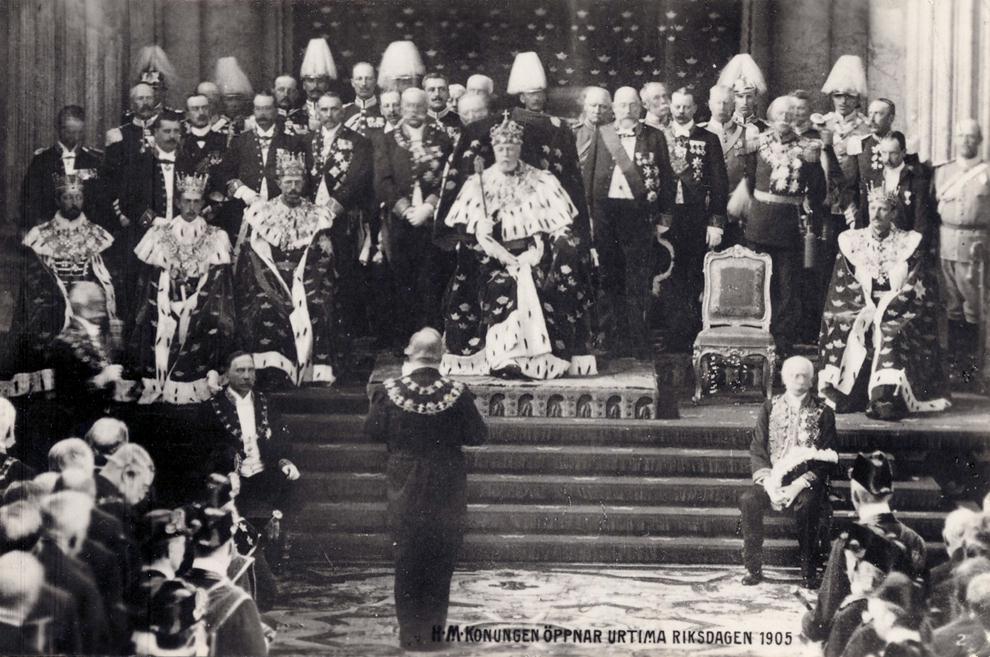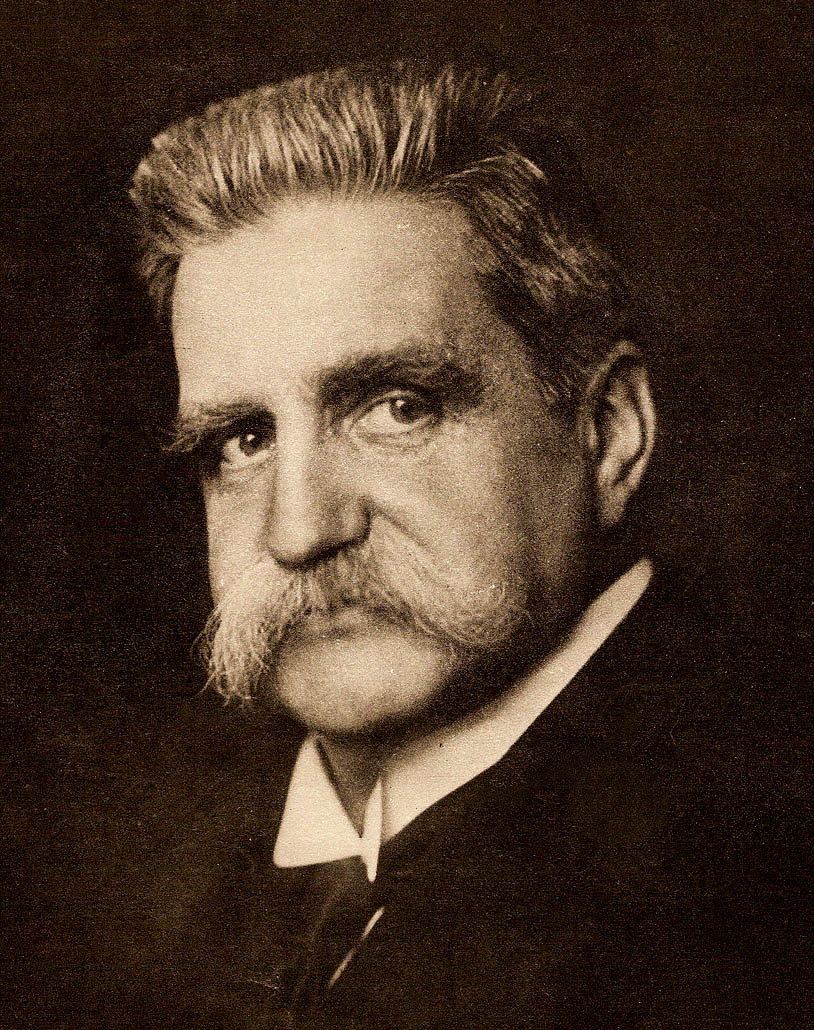|
Första Kammaren
The Första kammaren (literally "First Chamber", often abbreviated 'FK') was the upper house of the bicameral Riksdag of Sweden between 1866 and 1970 that replaced the Riksdag of the Estates. During the bicameral period, the lower house of the Riksdag was the Andra kammaren (literally "the Second Chamber"). Both chambers had generally similar and parallel powers. At the time of its abolition, the First Chamber had 151 members. These were indirectly elected for eight-year terms of office, from amongst the county councils (''landsting'') and city councils (''stadsfullmäktige''), which formed electoral colleges, some of which holding elections every year, with local elections being held every four years in even years when elections to the Second Chamber were not due to be held. During a large portion of the long tenure of power for the Social Democrats Social democracy is a political, social, and economic philosophy within socialism that supports political and econo ... [...More Info...] [...Related Items...] OR: [Wikipedia] [Google] [Baidu] |
Coat Of Arms Of Sweden
The coat of arms of the Kingdom of Sweden ( sv, Sveriges riksvapen) has a greater and a lesser version. Regulated usage The usage of the coats of arms is regulated by Swedish Law, Swedish Code of Statutes, Act]1970:498 which states (in unofficial translation) that "in commercial activities, the coats of arms, the flag or other official insignia of Sweden may not be used in a trademark or other insignias for products or services without proper authorisation. This includes any mark or text referring to the Swedish State which this can give the commercial mark a sign of official endorsement. This includes municipal coats of arms which are registered." Any representation consisting of three crowns ordered two above one are considered to be the lesser coat of arms, and its usage is therefore restricted by law 1970:498. Variants The arms of Sweden were first formally codified by law in 1908. This law also formally codifies the differences between the "greater" and "lesser" arms. Th ... [...More Info...] [...Related Items...] OR: [Wikipedia] [Google] [Baidu] |
Municipal Council (Sweden)
A municipal council ( sv, Kommunfullmäktige) is the decision-making body governing each of the 290 municipalities of Sweden. Though the Swedish Local Government Act ( sv, Kommunallagen) uses the term "municipal assembly" in an English translation of the Act, "municipal council" and even "city council" are used as well, even in official contexts in English by several of Sweden's largest municipalities, including Stockholm, Malmö, and Gothenburg.City of Göteborg: "The City Council" (English) This system of administrative division was established with the municipal reform of 1971. Prior to this reform, municipal governance in Sweden was conducted by either a ''kommunalfullmäktige'' (municipal council in rural areas) or a ''stadsfullmäktige'' (city council in urban areas). The number of members in each assembly can range from 21 to 101, depending on the population of the municipality in question. Members of the assemblies are chosen to serve for four-year terms through electio ... [...More Info...] [...Related Items...] OR: [Wikipedia] [Google] [Baidu] |
1866 Establishments In Sweden
Events January–March * January 1 ** Fisk University, a Historically black colleges and universities, historically black university, is established in Nashville, Tennessee. ** The last issue of the abolitionist magazine ''The Liberator (anti-slavery newspaper), The Liberator'' is published. * January 6 – Ottoman Empire, Ottoman troops clash with supporters of Maronite leader Youssef Bey Karam, at St. Doumit in Lebanon; the Ottomans are defeated. * January 12 ** The ''Royal Aeronautical Society'' is formed as ''The Aeronautical Society of Great Britain'' in London, the world's oldest such society. ** British auxiliary steamer sinks in a storm in the Bay of Biscay, on passage from the Thames to Australia, with the loss of 244 people, and only 19 survivors. * January 18 – Wesley College, Melbourne, is established. * January 26 – Volcanic eruption in the Santorini caldera begins. * February 7 – Battle of Abtao: A Spanish naval squadron fights a combined Peruvian-Chil ... [...More Info...] [...Related Items...] OR: [Wikipedia] [Google] [Baidu] |
Political History Of Sweden
Sweden, formally the Kingdom of Sweden,The United Nations Group of Experts on Geographical Names states that the country's formal name is the Kingdom of SwedenUNGEGN World Geographical Names, Sweden./ref> is a Nordic country located on the Scandinavian Peninsula in Northern Europe. It borders Norway to the west and north, Finland to the east, and is connected to Denmark in the southwest by a bridgetunnel across the Öresund. At , Sweden is the largest Nordic country, the third-largest country in the European Union, and the fifth-largest country in Europe. The capital and largest city is Stockholm. Sweden has a total population of 10.5 million, and a low population density of , with around 87% of Swedes residing in urban areas in the central and southern half of the country. Sweden has a nature dominated by forests and a large amount of lakes, including some of the largest in Europe. Many long rivers run from the Scandes range through the landscape, primarily emp ... [...More Info...] [...Related Items...] OR: [Wikipedia] [Google] [Baidu] |
Legislative Buildings In Europe
A legislature is an assembly with the authority to make laws for a political entity such as a country or city. They are often contrasted with the executive and judicial powers of government. Laws enacted by legislatures are usually known as primary legislation. In addition, legislatures may observe and steer governing actions, with authority to amend the budget involved. The members of a legislature are called legislators. In a democracy, legislators are most commonly popularly elected, although indirect election and appointment by the executive are also used, particularly for bicameral legislatures featuring an upper chamber. Terminology The name used to refer to a legislative body varies by country. Common names include: * Assembly (from ''to assemble'') * Congress (from ''to congregate'') * Council (from Latin 'meeting') * Diet (from old German 'people') * Estates or States (from old French 'condition' or 'status') * Parliament (from French ''parler'' 'to speak') ... [...More Info...] [...Related Items...] OR: [Wikipedia] [Google] [Baidu] |
20th Century In Sweden
This is a timeline of Swedish history, comprising important legal and territorial changes and political events in Sweden and its predecessor states. To read about the background to these events, see History of Sweden. See also the list of Swedish monarchs and list of prime ministers of Sweden. 1st century - 5th century 6th century - 9th century 10th century 11th century 12th century 13th century 14th century 15th century 16th century 17th century 18th century 19th century 20th century 21st century See also * Timeline of Faroese history * Timeline of Icelandic history ;Cities in Sweden * Timeline of Gothenburg * Timeline of Stockholm history References Further reading * * * External links * {{Years in Sweden Swedish Swedish or ' may refer to: Anything from or related to Sweden, a country in Northern Europe. Or, specifically: * Swedish language, a North Germanic language spoken primarily in Sweden and Finland ** Swedish alphabet, the ... [...More Info...] [...Related Items...] OR: [Wikipedia] [Google] [Baidu] |
Defunct Upper Houses
Defunct (no longer in use or active) may refer to: * ''Defunct'' (video game), 2014 * Zombie process or defunct process, in Unix-like operating systems See also * * :Former entities * End-of-life product An end-of-life product (EOL product) is a product at the end of the product lifecycle which prevents users from receiving updates, indicating that the product is at the end of its useful life (from the vendor's point of view). At this stage, a ... * Obsolescence {{Disambiguation ... [...More Info...] [...Related Items...] OR: [Wikipedia] [Google] [Baidu] |
Första Kammaren
The Första kammaren (literally "First Chamber", often abbreviated 'FK') was the upper house of the bicameral Riksdag of Sweden between 1866 and 1970 that replaced the Riksdag of the Estates. During the bicameral period, the lower house of the Riksdag was the Andra kammaren (literally "the Second Chamber"). Both chambers had generally similar and parallel powers. At the time of its abolition, the First Chamber had 151 members. These were indirectly elected for eight-year terms of office, from amongst the county councils (''landsting'') and city councils (''stadsfullmäktige''), which formed electoral colleges, some of which holding elections every year, with local elections being held every four years in even years when elections to the Second Chamber were not due to be held. During a large portion of the long tenure of power for the Social Democrats Social democracy is a political, social, and economic philosophy within socialism that supports political and econo ... [...More Info...] [...Related Items...] OR: [Wikipedia] [Google] [Baidu] |
History Of The Riksdag
The Riksdag is the national legislature of Sweden. However, when it was founded in 1866 Sweden did not have a parliamentary system of government. The national legislatures of Estonia and Finland are also called Riksdag in Swedish. The Old Riksdag The precursor to the modern Riksdag was the Riksdag of the Estates ( sv, Ståndsriksdagen). Of ancient origin in the Viking Things, the 1435 meeting in the city of Arboga is considered the first Riksdag, however only three of the estates were probably present the nobility, the clergy and the burghers. This informal representation was formalized in 1527 by King Gustav I of Sweden to include representatives of all the four estates, which historically reflected the lines of division in Swedish society: the nobility, the clergy, the burghers and the peasantry. Under the Instrument of Government of 1809 the Riksdag shared the powers of government with the King. The New Riksdag On the basis of the 1863 electoral reform bill the ... [...More Info...] [...Related Items...] OR: [Wikipedia] [Google] [Baidu] |
The American Political Science Review
The ''American Political Science Review'' is a quarterly peer-reviewed academic journal covering all areas of political science. It is an official journal of the American Political Science Association and is published on their behalf by Cambridge University Press. The journal was established in 1906. It is considered a flagship journal in political science. Abstracting and indexing The journal is abstracted and indexed in the Social Sciences Citation Index, Current Contents / Social & Behavioral Sciences, International Bibliography of Periodical Literature, and the International Bibliography of Book Reviews of Scholarly Literature and Social Sciences. According to the ''Journal Citation Reports'', the journal has a 2016 impact factor of 3.316, ranking it 5th out of 165 journals in the category "Political Science". Editorial team The first three managing editors were W. W. Willoughby (1906-1916), John A. Fairlie (1917-1925) and Frederic A. Ogg (1926–1949). For the 2020 ... [...More Info...] [...Related Items...] OR: [Wikipedia] [Google] [Baidu] |
Swedish Social Democratic Party
The Swedish Social Democratic Party, formally the Swedish Social Democratic Workers' Party ( sv, Sveriges socialdemokratiska arbetareparti ; S/SAP), usually referred to as The Social Democrats ( sv, link=no, Socialdemokraterna ), is a social-democratic political party in Sweden. Founded in 1889, the SAP is the country's oldest and currently largest party. From the mid-1930s to the 1980s, the Social Democratic Party won more than 40% of the vote. From 1932 to 1976, the SAP was continuously in government. Most recently, the party was heading the government from 2014 to 2022. It participates in elections as "The Workers' Party – The Social Democrats" ( sv, link=no, Arbetarepartiet – Socialdemokraterna ). History Founded in 1889 as a member of the Second International, a split occurred in 1917 when the left socialists split from the Social Democrats to form the Swedish Social Democratic Left Party (later the Communist Party of Sweden and now the Left Party). The symbol of th ... [...More Info...] [...Related Items...] OR: [Wikipedia] [Google] [Baidu] |
County Councils Of Sweden
A regional council ( sv, region) is a self-governing local authority. There are 21 regional councils (one of which is a municipality having the same responsibilities as a county council), each corresponding to a county. Regional councils are governed by a regional assembly (''regionfullmäktige'') that is elected by the regional electorate every four years in conjunction with the general elections. The most important responsibilities of regional councils are the public health care system and public transportation. It is one of the principal administrative subdivisions of Sweden. Within the same geographical borders as the regional councils, there are county administrative boards, an administrative entity appointed by the government. As of 2010, the different regional council assemblies had a combined total of 1,696 seats. Constitutionally, the regional councils exercise a degree of municipal self-government provided by the Basic Laws of Sweden. This does not constitute any ... [...More Info...] [...Related Items...] OR: [Wikipedia] [Google] [Baidu] |





